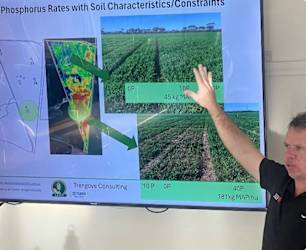TIME is almost up for grass-fed beef and sheep meat producers to have their say in a research consultation process.
The Meat & Livestock Australia (MLA) initiative – which has funded more than $50m worth of projects – aims to empower producers to directly influence the on-farm research, development and adoption (RD&A) activities their levies are invested in.
“MLA’s producer consultation process puts producers at the forefront of decision-making regarding the allocation of their levies,” said Georgie Townsend, program manager for consultation.
“This process is now open and ensures national and regionally relevant RD&A priorities are identified and that MLA’s investments deliver optimum value to producers.
“For anyone that has a burning research challenge in their region that needs addressing, now is the time to speak up.”
The producer consultation process starts with South Australian producers communicating with the state’s regional consultation committee: Southern Australia Livestock Research Council (SALRC).
Nineteen regional committees across the country meet up to four times a year and are a vital link to ensure that MLA is hearing what is happening on the ground, helping identify potential gaps where investment in research, development and adoption could provide solutions.
From there, MLA works to identify the scope, impact and scale of research needed to address the priorities.
“Through the MLA producer consultation process, MLA can ensure that where there is current research or extension activities relevant to that region are being delivered, that we communicate back to these groups,” Ms Townsend said.
“I’d encourage all producers interested to get involved by contacting their local committee. MLA is committed to fostering a collaborative and innovative industry that benefits everyone involved, and this process ensures no one misses out on having their say.”
Producers have until 1 December 2023 to provide their input through the SALRC.






